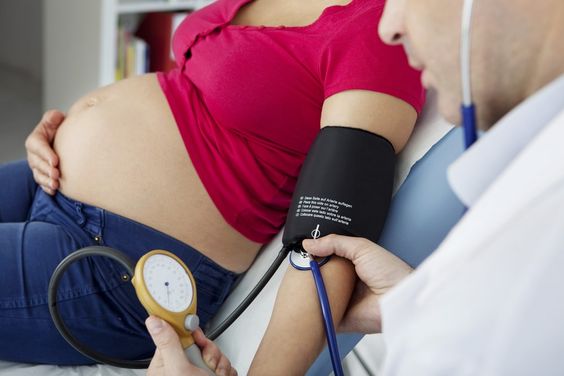Introduction
Gestational hypertension, also known as pregnancy-induced hypertension, is a condition that affects pregnant women, typically after 20 weeks of gestation. It is characterized by high blood pressure and can sometimes be accompanied by protein in the urine (proteinuria), a condition known as preeclampsia.

Gestational hypertension can pose risks to both the mother and the developing baby. Understanding the causes, recognizing the symptoms, and seeking timely treatment are crucial for managing this condition effectively and ensuring a healthy pregnancy.
Causes of Gestational Hypertension
The exact causes of gestational hypertension are not fully understood, but several factors are thought to contribute to its development. These include:
- First-time pregnancy: Women experiencing their first pregnancy are at a higher risk.
- Family history: A family history of gestational hypertension or preeclampsia increases the likelihood.
- Multiple pregnancies: Carrying twins, triplets, or more increases the risk.
- Advanced maternal age: Women over 35 are more likely to develop gestational hypertension.
- Pre-existing conditions: Underlying health issues like diabetes, kidney disease, and autoimmune disorders can contribute.
Symptoms of Gestational Hypertension
Many women with gestational hypertension experience no noticeable symptoms, making regular prenatal checkups with blood pressure monitoring vital. However, when symptoms do occur, they may include:
- Severe headaches
- Vision changes such as blurring, flashing lights, or temporary vision loss
- Upper abdominal pain, often under the ribs on the right side
- Nausea and vomiting
- Sudden swelling in the face, hands, and feet
- Reduced urine output
Treatment for Gestational Hypertension
Treatment for gestational hypertension focuses on managing blood pressure and preventing complications. The specific treatment plan will depend on the severity of the condition and how far along the pregnancy is. Options may include:
- Monitoring: Regular blood pressure checks and urine tests.
- Medications: Antihypertensive drugs to lower blood pressure.
- Hospitalization: In severe cases, hospitalization for close monitoring and treatment might be necessary.
- Early delivery: If the condition poses significant risks to the mother or baby, early delivery may be recommended.
Prevention and Early Detection
While not all cases of gestational hypertension are preventable, some measures can help reduce the risk:
- Maintain a healthy weight: Aim for a healthy weight before and during pregnancy.
- Control pre-existing conditions: Manage conditions like diabetes or hypertension effectively.
- Regular prenatal care: Attend all scheduled prenatal appointments for monitoring and early detection.
- Healthy diet: Follow a balanced diet that includes ample fruits, vegetables, and whole grains.
- Regular exercise: Engage in moderate-intensity exercise as advised by your doctor.
It is important to note that this information is for general knowledge and does not substitute professional medical advice. Always consult with a healthcare professional for any concerns regarding gestational hypertension or other health conditions during pregnancy.

.jpg)